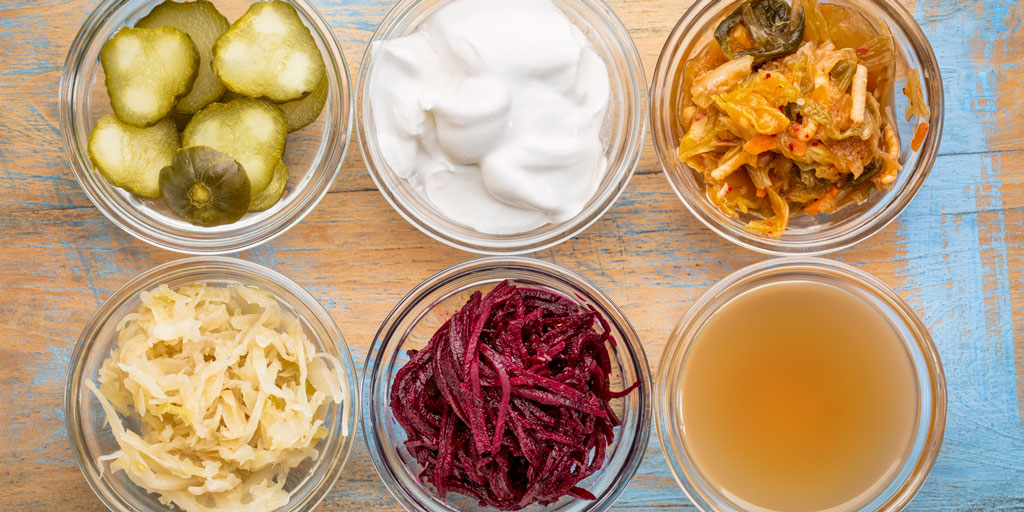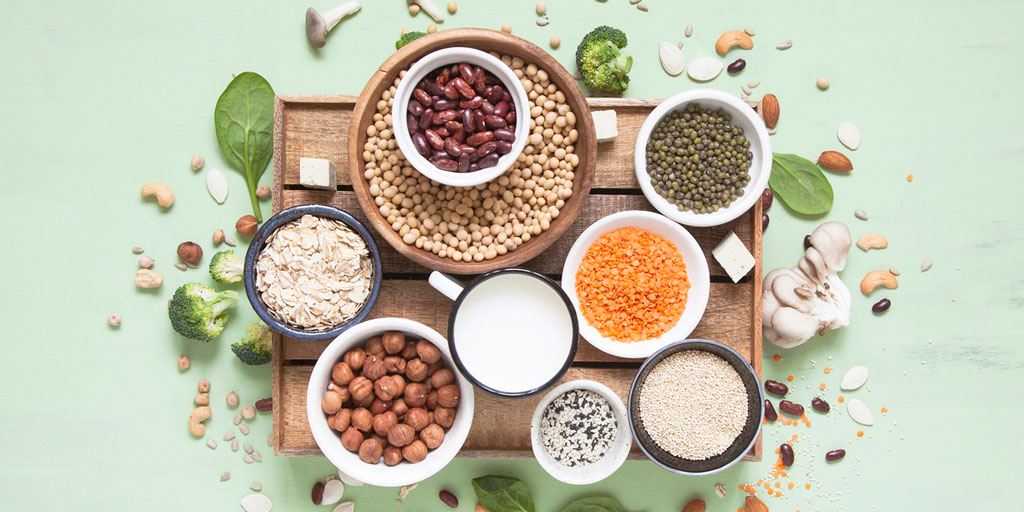Get started with a free trial.
THE BEST FOODS FOR GOOD GUT HEALTH
Gut health has been a buzz term for some time now, but what exactly does our gut have to do with our overall health and what foods will best nourish it? Keep your diet in tip-top shape with these foods for gut health.
TRUST YOUR GUT
Collectively known as the gut microbiome, the human gut naturally contains over 100 trillion bugs, and harbouring a good balance of these tiny critters is believed to play a key role in keeping us healthy. The trouble is, modern day stresses, lifestyle choices and more frequent consumption of antibiotics can throw the delicate balance of gut bacteria out of whack, predisposing us to many of our modern-day health woes, including a compromised immune system, malnutrition, depression and obesity.
PROBIOTICS
Probiotics are the ‘friendly’ type of bacteria found naturally in the body, as well as in select foods and supplements. Many of us are likely to get most of our probiotic intake from ‘live’ yoghurt, which also contain other valuable nutrients, including calcium and protein. Other common foods include kefir (milk drink), miso, kombucha, sauerkraut and kimchi (fermented vegetables), and some cheeses.
Supplements on the other hand are intended to mimic these “good” bacteria in order to “rebalance” the gut. However a number of studies supporting the use of probiotic supplementation are mixed. Some research suggest supplements can reduce symptoms of irritable bowel syndrome (IBS), including bloating and constipation, but the questions are whether the probiotic can survive the transit through the gastrointestinal tract to reach the colon where most exert their effect. Secondly, knowing what strain to take as particular strains of probiotics may have different beneficial effects in the body. For example some are known to support digestive health (regularity and bloating), and others support immune health.
What research has confirmed is that optimal gut health is not just about quantity of those helpful bacterial strains, it’s about diversity. So, adding a few strains of bacteria to your microbiome through taking expensive probiotic supplements probably won’t boost your gut health diversity all that much.

PREBIOTICS
While probiotic-rich kombucha and kimchi may receive more attention for improving the balance of friendly gut microbes, more and more research supports the idea that the more powerful approach might be to better feed the beneficial bacteria we already harbour.
The beneficial bugs (probiotics) preferably feast on fermentable fibres, which come from specific types of high fibre plant-based foods such as wholegrains (cous cous, barley, oats), legumes (baked beans, chickpeas) and vegetables (onions, green peas, sweetcorn, artichoke) and some fruits (watermelon, bananas, custard apples). These fibres are fermented by gut bacteria, which are believed to positively affect our immune system, reduce our risk of certain cancers, regulate our mood, and subsequently encourage healthy and diverse bacteria growth. Keeping these gut bugs well nourished means our intestines and immune system remain in good working order.

HOW TO EAT YOUR WAY TO A HEALTHY GUT
Eat a wide range of fibre-rich, plant-based foods. A healthy gut has a diverse community of microbes, each of which prefer different forms of dietary fibre: Fill your plate with seasonal fruit, vegetables, legumes, nuts and whole grains.
Choose whole grains over refined grains, such as wholemeal pasta or bread, wholegrain breakfast cereals, brown rice, freekeh, teff or quinoa.
Choose high fibre snacks. Opt for fresh fruit, raw vegetables or whole grain crackers. Top with hummus or nut butters for a plant protein boost.
Enjoy probiotic-rich foods, such as ‘live’ yoghurt, some cheeses and fermented foods to encourage more microbes to grow.
Filter
Show by